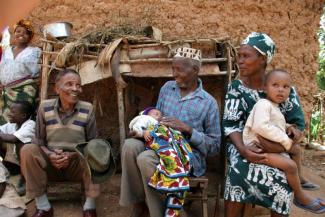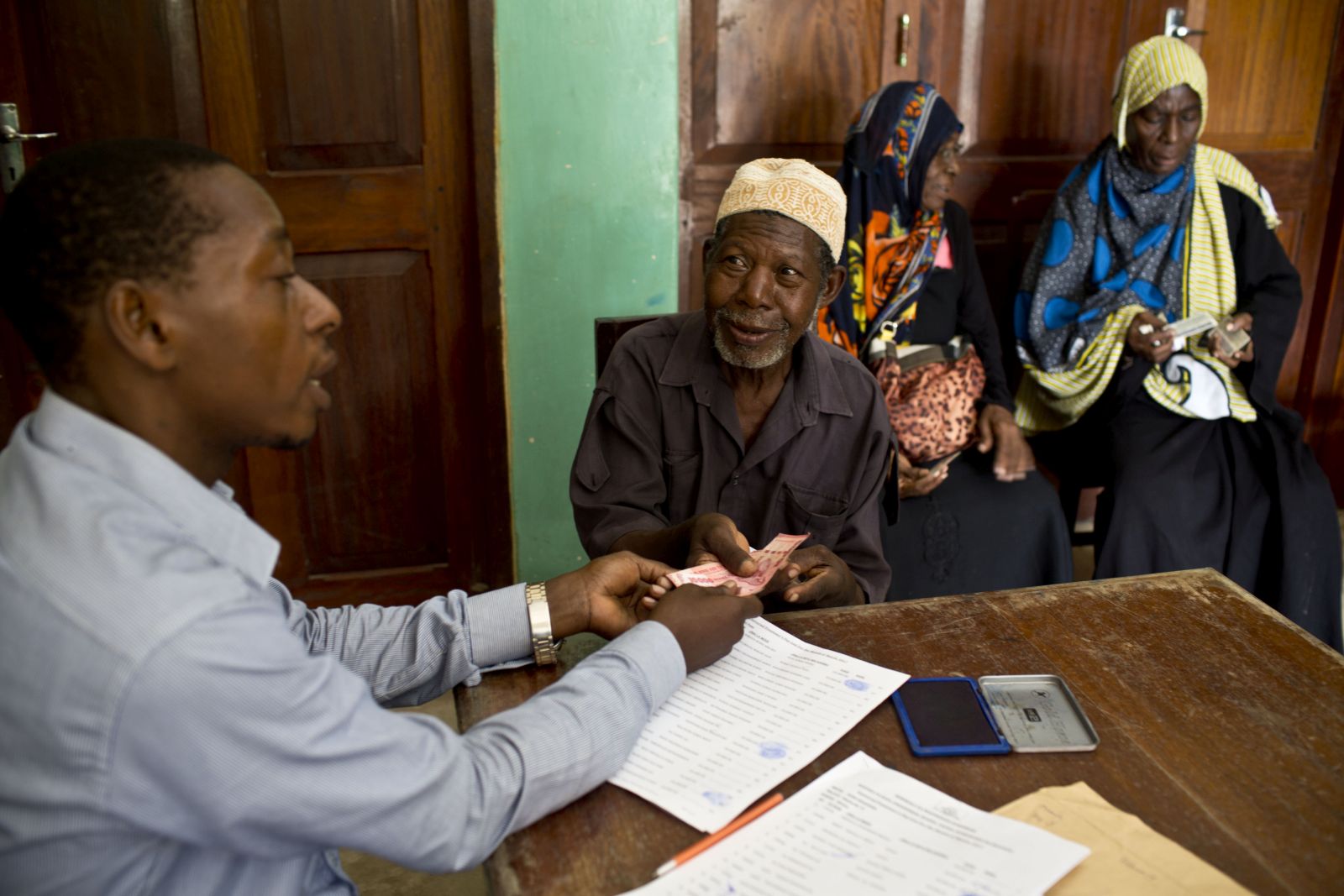SEF Conference
Strengthening African safety nets

Social safety nets protect people from the consequences of risks like illness, unemployment, poverty and accidents. They also provide pensions in old age. In the eyes of Ebenezer Adjetey-Sorsey, the executive director of HelpAge Ghana, social protection is a crucial development issue. He points out that protecting everyone from poverty, risks and vulnerability is a question of social justice – and a tool for empowerment.
According to Adjetey-Sorsey, Africans are eager to improve standards of living. He appreciates various initiatives to establish and expand safety nets. Examples include the 2011 Tripartite Social Dialogue Forum that was started by the Economic Community of West African States (ECOWAS) and various charters that target social protection in other regional economic communities.
Unfortunately, data on poverty tend to be in short supply and unreliable. Adjetey-Sorsey recommends redoubling efforts to build social protection. He also suggests handing social-protection payments (cash transfers) over to women instead of men, as experience shows that women are more likely to spend the money on family exigencies, including education and health care. “It is going to take a lot of awareness-raising to change the traditionally patriarchal mind-set and cultural norms in Africa,” he says.
Implementing social-protection systems is a huge undertaking, according to Adjetey-Sorsey, and many stakeholders must be involved – from the government to NGOs, various institutions and the private sector. He is confident that change is feasible, though serious efforts are needed: “We have to work even harder and must be backed by more decisive political will.” He says social protection is still a low priority for many African governments, and that is evident in their budgeting. Without donor money, normally not much happens in regard to social protection.
At a recent conference hosted by the Development and Peace Foundation (SEF – Stiftung Entwicklung und Frieden) in Potsdam, Adjetey-Sorsey said that donor governments generally pursue interests of their own – which he considers one reason why African governments do not assume sufficient policy ownership. “When social protection is the topic, everyone points out the lack of funding. I am convinced that we could achieve a lot through restructuring budgets and re-assigning resources.”
Simeon Uulenga from the Namibian embassy disagrees. He reports that Namibia’s government is keen on fighting poverty and inequality by improving social protection systems. Apart from Namibia, only few African nations have systems in place, he says. Mauritius and South Africa are examples, but Uulenga adds that – with the exception of Mauritius – most systems are fragmented and do not serve all people. Health insurance and pension systems typically only serve people in formal employment, Uulenga says, leaving people in the informal sector to fend for themselves. To change matters, Namibia’s government is working on introducing an unconditional basic income grant (BIG) for the ultra-poor. The scheme, Uulenga says, could be funded by taxing prosperous citizens.
Nkateko Chauke from the Open Society Foundation for South Africa (OSF-SA) appreciates the idea. She says an unconditional basic income should be funded by levying taxes on extractive industries. She notes that mining rights in South Africa are largely unregulated and not linked to obligations to promote the public good or protect the environment. Mining therefore does not benefit the public much, according to Chauke, whereas a BIG could complement the social systems already in place in South Africa.
Financing models
Francesca Bastagli of the London-based Overseas Development Institute (ODI) does research on possible models for social-protection funding. She sees a range of options, in which payroll taxes and other taxes feature prominently (see box below). Bastagli explains that systems that depend on all kinds of government revenues have the advantage of reaching masses of people and do not only serve the people who pay payroll taxes because they work in the formal sector. She is in favour of setting off virtuous cycles. “Cash transfers,” she says, “are an effective instrument that usually has an immediate effect.”
Anja Hornig from the GFA Consulting Group agrees, pointing out that an Indonesian conditional cash transfer programme was very successful in terms of reducing poverty. With World Bank funding, the Indonesian government gave money to 300,000 people during the pilot phase and later expanded the programme to reach 3 million and ultimately 10 million people, Hornig says.
Escaping extreme poverty
Social protection is closely linked to poverty reduction. BRAC, an independent development agency from Bangladesh, has taken a pioneering approach to helping people find their way out of extreme poverty. BRAC ties cash transfers to a range of additional forms of assistance, including skills training (vocational as well as relating to daily life) and the provision of micro credits. Since 2002, BRAC has greatly improved food security for the ultra-poor in Bangladesh, reports Raania Rizvi from the BRAC Ultra Poor Graduation Programme. She laments that the government is not showing sufficient commitment to the cause. “Surely reducing poverty is in the government’s interest too.”
Bessie Msusa, chief economist at Malawi’s Ministry of Finance, reports that social protection is high on her country’s national agenda. She points out several support programmes initiated by the government and implemented with the help of donor institutions such as Germany’s Federal Ministry for Economic Cooperation and Development (BMZ). One is a conditional cash transfer programme that pays beneficiaries the equivalent of $ 60 dollars per month, obliging them to attend a job training course. Another one is an unconditional cash transfer scheme to support the ultra-poor. “We’ve learned from BRAC’s experience,” Msusa says.
Regine Kopplow of Concern Worldwide claims that her organisation has also learned from BRAC, adapting its concept for alleviating extreme poverty in African countries. “We have to give ultra-poor households both money and training. We also support village savings programmes and savings groups.”
Kopplow emphasises the need for sufficient groundwork. She says it is necessary to assess diligently, “what resources will really help the needy: loans, livestock, vocational skills?”
Hans-Peter Baur from the BMZ highlights that German development policy supports social protection systems and is cooperating with many partners, including Malawi’s government. Moreover, the BMZ supports the African Risk Capacity, a multilateral insurance scheme. It promotes disaster preparedness and indemnifies African nations against the consequences of draught and other climate risks. The African Risk Capacity wants 500 million Africans to be covered by climate-related insurance policies by 2020. Crop insurance is obviously not a classical tool of social-protection policymaking – but it certainly serves the purpose.














